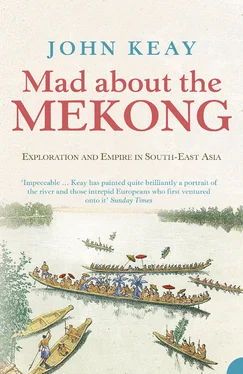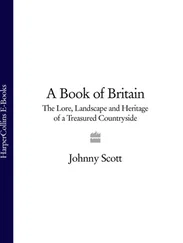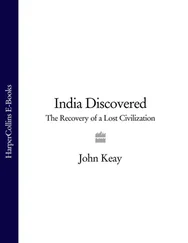Only the river is refreshingly animated. Darting through fifty-metre narrows, it bellies into pools a kilometre wide and then squirms, like a sleek and well-fed snake, down a barren trough isolated from the tousled shade of its banks by humped sandbars and a wilderness of spectacular upthrusts of black bedrock. Where the rock ventures into its path, the river hisses a caution and recoils in a tangle of eddies, welling up, flicking at the sunlight and glancing aside to nose out other options before slithering prodigiously over the obstruction in a cascade of watery colours.
Midway between Thailand and Chinese Yunnan, a succession of such encounters comprises the Tang-ho rapids. They extend, with intermissions, for perhaps 150 kilometres and confront the navigator with an awesome prospect of boiling whirlpools and spuming cataracts. In June 1867 they were the final straw for the Mekong Exploration Commission. After a year of canoeing up Asia’s most capricious river, the six Frenchmen who had undertaken its exploration conceded defeat. From here on they would take to the steep banks, then to the hills and the forests, plotting the river where possible but increasingly deflected from its course by obstructive princelings and their own debilitated condition.
Their proximity to China alone kept them going. Deep in the forest gloom they would stumble on a paved trail and then a humpbacked bridge built of cut stone and once inset with ceramic tiles. Evidently the civilising light of the Celestial Empire had once penetrated these dark recesses. A mandarin’s robes and the staccato sound of spoken Chinese sent the Frenchmen into raptures. In China their credentials would be acknowledged and their credit was good. After months of floundering amid malarial jungle, terrorised by tigers, devoured by leeches, often feverish and increasingly destitute, their salvation seemed nigh. They dreamed of wearing shoes again and sleeping in sheets, of tableware and postal facilities and the privacy of stone walls and stout doors. They were not to know that forsaking the river was the prelude to catastrophe, or that the controversies, no less than the crises, were yet to come.
Sensing only that the Mekong was about to elude them, Francis Garnier, the expedition’s restless surveyor, set off alone from the Tang-ho rapids on a last day’s excursion upriver. With a compass in his hand and a cold chicken in his haversack, he picked his way past the rapids, and as the sun slanted over the trees on the hilltops, became overwhelmed by an acute sense of wonder. The great river and the boundless forest were utterly deserted. He felt like a trespasser in paradise. He shouted to reassure himself but quickly resented the sound. His shadow, marching across the sandbanks beside him, was no less intrusive: it seemed, as Garnier put it, ‘to violate the virginity of a natural world that until now had escaped the profanity of man’.
Behind an outcrop of rock he surprised a young stag drinking from the river. Though only ten paces away, it stood its ground, and when he stopped to reach instinctively for his rifle, the stag actually moved towards him. ‘It came to me like a memory of Eden,’ he would write. Both thrilled and intimidated, he had no regrets about being unarmed, yet still could not resist making a grab for its antlers. The stag bolted and Garnier cursed his own impatience. It should have been like a fairy story, he thought, or one of La Fontaine’s fables. If only, instead of grabbing at it, he had engaged it in polite conversation.
After a hard scramble through the tangled forest to circumvent a portal of rock, he rejoined the river and, now sweating profusely, went for a swim. He was barely out of his depth when two elephants broke cover. One turned back; the other, a big dark tusker, waded into the water beside him. Garnier backed into midstream and prepared to take flight by launching himself into the main current. ‘The proboscidean’ fixed an eye on him and occasionally waved its trunk in his direction. But it did not approach. It seemed content just to wallow and shower itself with river-water. Naked and defenceless, Garnier cautiously floated into the bank and, grabbing his clothes, fled across the sands and into the forest. The elephant paid no attention. Later, on glancing back, Garnier could still see the spray from the fountain of its trunk raining down in a prism of sunlight.
Lunch was taken in the shade, then it was time to turn back. In the heat of the day the silence was more absolute than ever. Garnier longed to erase his own tracks in the sand; they too seemed to sully surroundings of such heart-rending beauty. Yet that night, back in camp when he told of his adventures, a colleague’s suggestion that they revisit this huntsman’s ‘Eldorado’ with shotguns and rifles met with no objection. For repaying nature’s ‘pacific and almost friendly’ reception with bullets Garnier felt a mild pang of remorse but said nothing. Bloodlust prevailed. Evidently virgin lands meant fair game – and that included the river itself.
This long, lyrical and perhaps fanciful passage stands out in the records of the Mekong Exploration Commission because it is so untypical. Disappointment and hardship had more often been the expedition’s lot; destitution and death would as surely follow. A day in paradise, for Garnier at least, was a moment of tranquillity set amid buffeting cascades of menace and misfortune. Here Heaven met Hades round every bend in the river. ‘This solitary Mekong scene,’ he concluded, ‘one of the last that it was given to me to see, would remain deeply etched in my memory.’
The passage is immediately preceded, and partly explained, by another admission. He had succumbed, he says, to a ‘ monomanie de Mékong ’. It was he who had insisted on pursuing the river long after it had become an irrelevance to the expedition’s political and commercial concerns. It was he who had deflected their course from the most direct route to China into the dangerous no-man’s land of the Shan states on the Lao – Burmese border. The river for Garnier had come to eclipse all else, including the expedition’s safety. What mattered was to map its every twist, chart its every rapid, explore its every secret. He had become, he says, obsessed by it, possessed by it, mad about it.
Mountaineers commonly get obsessed by particular peaks, exaggerating their mystique and slavering over their icy profile. A river obsession is more of a rarity. It takes an especially determined explorer and a peculiarly wayward river. Joseph Conrad set his Heart of Darkness in Africa and positioned the terrible Kurtz on the upper reaches of the Congo. In the film Apocalypse Now Francis Ford Coppola, while appropriating the Conrad story and retaining Kurtz, transposed the river. Recognising a renegade American holed up in the jungles of south-east Asia as a latter-day Kurtz, he simply swapped the Congo for the Mekong. There was little to choose between them; they were rivers ‘of a kind’. Up both lurked twilight forces of good and evil, forbidding yet enticing, virgin yet corrupting. And just as for Conrad the Congo was the obvious setting for an exploration of that ‘heart of darkness’ at the core of early twentieth-century civilisation, so for Coppola the Mekong was the obvious setting for a visionary parable of damnation in the late twentieth century.
A more historically-minded Coppola could have taken as his model the Mekong Exploration Commission. The same sense of dread would dog the Commission, the same pockets of renegade authority would confront them, and the same questioning of their own credentials would result. Even today, above the Tang-ho rapids, obscure ethnic groups jealously maintain an insurgent status which goes back to colonial times, while disputed enclaves harbour a variety of illicit activities, all narcotics-related. The Golden Triangle, though now wishfully billed as an ‘Economic Quadrangle’, retains a reputation for pristine lawlessness which makes borders almost irrelevant. Thailand, Laos, Burma and China here abut one another in as mouthwatering a set of co-ordinates as one could wish for. But the maps are always misleading, and the bulldozing of unauthorised dirt roads or the declaration of phantom states renders them instantly out of date.
Читать дальше












